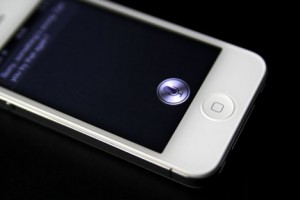
First came the news that Siri, the iPhone 4S’s snazzy voice-recognition assistant, directs users to crisis pregnancy centers but not abortion clinics. Then came Apple spokesmen’s predictable assurance that the company doesn’t have an agenda and Siri doesn’t intentionally omit any information or misdirect users; it simply has some kinks to work out.
That’s not good enough for the abortion lobby. On December 5, Chenda Ngak at CBS’s Tech Talk blog reported:
A petition at SignOn.org to fix the software is still active and they’ve even upped their goal to 40,000, after surpassing the original 30,000 signatures. A spokesperson for SignOn told me that the petition’s authors, which include former MoveOn staff member Nita Chaudhary, will present their petition to Apple once they’ve hit their goal and will not back down until a fix is released.
“We got over 30,000 signatures in less than 48 hours. Obviously, this is resonating with people,” Chaudhary told me over the phone. She was puzzled over how Apple, who is so swift to protect their brand, could let this go so long without a fix.
“It’s not a question of why. What’s important is that it’s affecting people now. Everyday Apple doesn’t fix this, women are getting hurt. They need to apologize and give a speedy timeline,” Chaudhary said.
No, Nita, they don’t need to do anything. It’s their product, not yours. Other than the phone exploding in people’s hands, Apple has the right to sell it with pretty much whatever alleged flaws they want, and you as the consumer have the right to buy or boycott accordingly.
Besides, even putting aside the odiousness of abortion for a moment, the idea that “women are getting hurt” by Siri’s abortion blind spot is so insane it calls into question Ms. Chaudhary’s grasp on reality. For one thing, if you can afford an iPhone 4s in the first place, odds are that the affordability of your “reproductive” care isn’t a huge hurdle, nor should you have any trouble looking up abortion on an ordinary computer. For another, you don’t even need Siri to find abortion clinics through the iPhone 4S itself—searching for “planned parenthood” and “abortion” is a snap on the device’s built-in web and map applications (to say nothing of countless third-party navigation & business finder apps).
Yet “women are getting hurt” because they can’t use voice command to ask their high-end smartphones to look up the information for them? Grow. Up.
Ngak also quotes the American Civil Liberties Union’s Jennifer Dalven as saying:
The Siri issue is a symptom of a much larger problem. Why is it that we can have ads on TV for Viagra but talking about where a woman can get birth control or an abortion is taboo? This has real consequence.
Where to begin? First, I kinda doubt there are many people at the ACLU who are actually bothered by Viagra commercials. Second, the “Siri issue” is only a “symptom of a much larger problem” if it was a conscious decision—and the evidence suggests that this is merely an example of search technology’s apolitical limitations. Third, and most significantly, if such a double standard really were deliberate, there would be a very simple, very good reason for it: abortion is murder and Viagra isn’t. Some messages should be stigmatized.
On the one hand, the fervor of Nita Chaudhary’s movement chillingly reveals that in some quarters, even neutrality on abortion is no longer tolerable; when abortionistas say “jump,” Apple is expected to answer with not just “how high” but “how fast.” On the other hand, her observation about potential damage to Apple’s powerful brand hints at a very revealing crossroad to come.
Getting 30,000 signatures on a petition is impressive, but the real test will be whether or not this puts a dent in iPhone sales. Will pro-choice sentiment help bring forth “the end of Apple fanboyism,” or will the choicers prove to be a paper tiger, their bark masking a bite that just doesn’t have it anymore?






